Christ is in our midst!
WELCOME NEW PARISHIONERS! New parishioners are always welcomed in our parish. If someone wants to register with our parish please contact Father Iura Godenciuc at 203-865-0388 or our financial secretary Natalia Chermak.
DIVINE LITURGY: Dear parishioners and guests, after each Divine Liturgy, coffee and hard rolls are available in the church hall.
Vigil Light: This week the vigil light is offered to God’s glory in memory of Myron Teluk given by Natalie Cybriwsky.
Asleep in the Lord: Myron Teluk died two weeks ago. Please offer a prayer for his peaceful repose and for his family who mourn him. Eternal memory.
The Ukrainian State Ukrainian Day Committee wishes to thank those parishioners who attended last year’s Ukrainian Day Festival in Stamford, especially those who assisted us during the day who prepared food in their parishes. The Connecticut State Ukrainian Day Committee wishes to invite all parishioners to attend this year’s Ukrainian Day Festival to be held on Sunday, September 9, 2018. This Festival is the 51st festival and a time to renew friendships of the past and make new ones. Please make an effort to attend. The Festival will be held on the grounds of St. Basil’s Seminary, 161 Glenbrook Rd., Stamford, CT. The day will begin with a Pontifical Divine Liturgy at 11:00 a.m., celebrated by the Most Rev. Paul Chomnycky, Bishop of the Ukrainian Catholic Diocese of Stamford. Immediately following the Divine Liturgy and throughout the day, Ukrainian food, picnic food and other refreshments will be available. In the afternoon, a lively and colorful program will take place of Ukrainian dances, songs and music, which will include dance groups from various areas of Connecticut and New York. Following the program there will be a Zabava until 8:00 p.m. Tours will be given at the unique Ukrainian museum on the grounds as well as the Diocesan Cultural Center and you can browse through the Outdoor arts and crafts exhibits of over twenty vendors who have a variety of items for sale. Advance general admission tickets are $5 per person, 12 and over and are available from members of the committee in your parish or your pastor. Tickets purchased at the gate will be $10 per person. No food or liquor is to be brought onto the grounds of the festival, liquor will be confiscated by the Stamford police. This festival can only continue to exist if volunteers sign up to help out during the day. Please contact your pastor or members of the Ukrainian Day Committee in your parish to sign up. Please make that effort to volunteer; we need your assistance to continue this Festival, which helps sustain our Diocese, Seminary and our Ukrainian people.
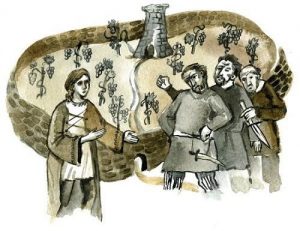 Read: 1 Corinthians 16:13-24; Matthew 21:33-42
Read: 1 Corinthians 16:13-24; Matthew 21:33-42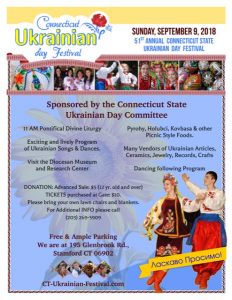
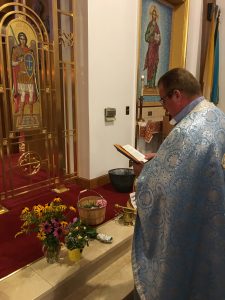 Blessing of Herbs and Flowers on the Feast of the Dormition of the Mother of God –August 15
Blessing of Herbs and Flowers on the Feast of the Dormition of the Mother of God –August 15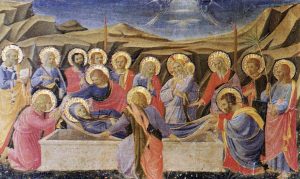 “Come, all you ends of the earth, let us praise the blessed passing of the Mother of God. She delivers her sinless soul into the hands of her Son; through her holy Dormition, the world is given new life.” (Stichera at the Litija)
“Come, all you ends of the earth, let us praise the blessed passing of the Mother of God. She delivers her sinless soul into the hands of her Son; through her holy Dormition, the world is given new life.” (Stichera at the Litija)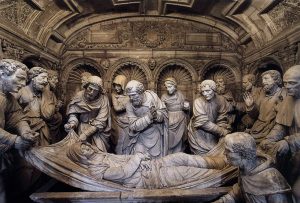 On Wednesday, August 15, Church celebrates feast of The Dormition of Our Holy Lady, The Mother of God and Ever-Virgin Mary (a Holy Day of obligation).
On Wednesday, August 15, Church celebrates feast of The Dormition of Our Holy Lady, The Mother of God and Ever-Virgin Mary (a Holy Day of obligation).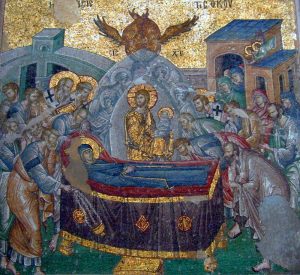 Dance with joy
Dance with joy